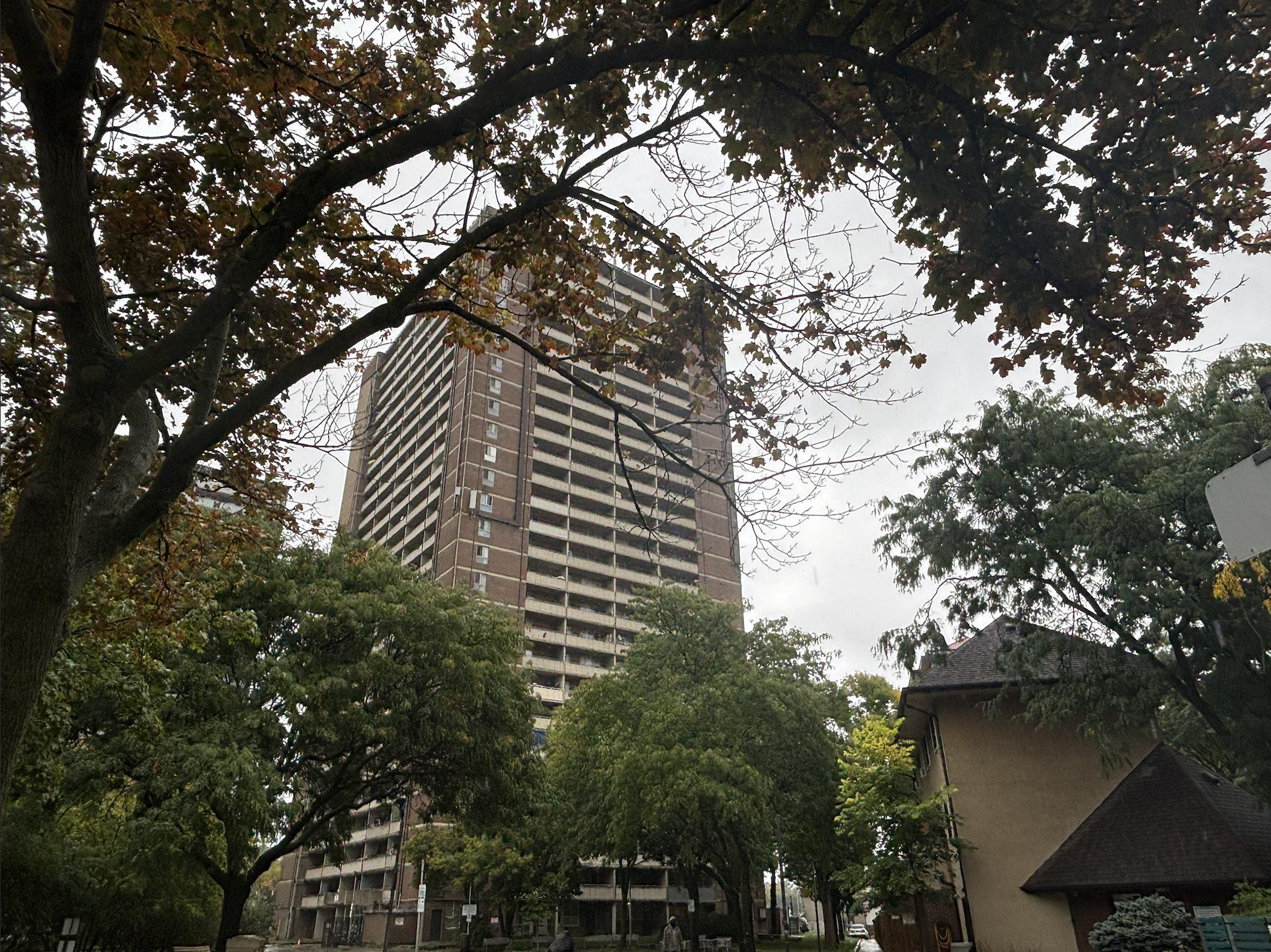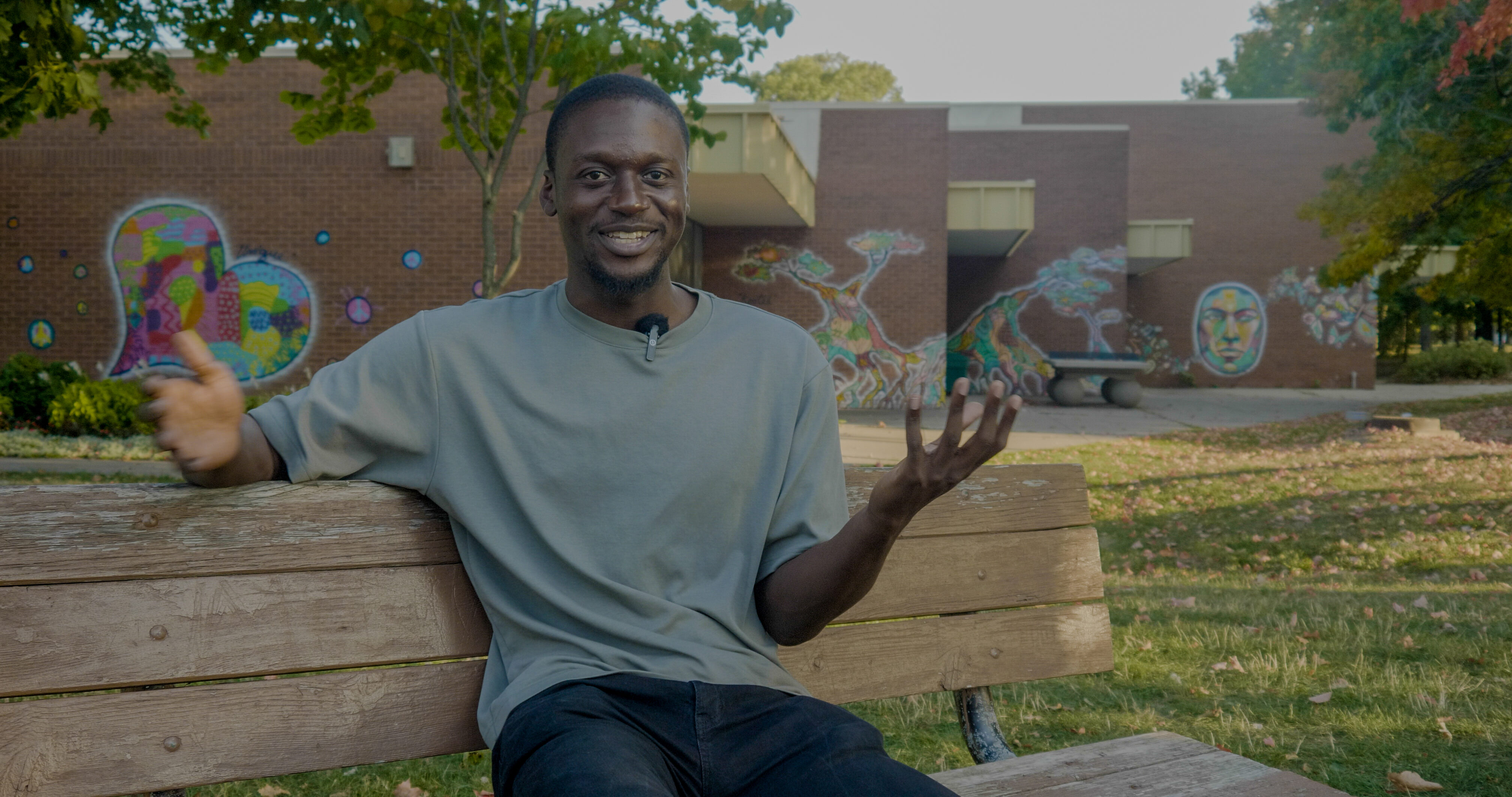THE GREEN LINE
DOCUMENTERS NOTES
How Toronto helps at-risk tenants — and how you can chime in
While there are a number of programs and resources available for Toronto’s at-risk tenants, advocates and residents say there are still some significant gaps.

The Toronto Community Housing high-rise at 220 Oak St. in Regent Park.


MORGAN MIYA
Curious luddite who firmly believes that community is everything and works towards keeping her neighbourhood of Little Jamaica healthy. Loves to travel the world within Tkaronto.

Mary Newman
British-Canadian journalist with a decade’s experience producing for the BBC and CBC. Hails from Robin Hood country so naturally hates wealth inequality and loves organized labour. Now resides in the dog paradise of Roncesvalles.
Sept. 26, 2025
These meeting notes are part of Documenters Canada, which is partly funded by the Social Sciences and Humanities Research Council of Canada (SSHRC). Learn more about our program here. The Green Line maintains full editorial independence to ensure journalistic integrity.
What resources does the City of Toronto offer tenants at risk of displacement?
On Sept.16, the Housing Rights Advisory Committee (HRAC) met at City Hall to discuss available programs for at-risk tenants — and to listen to feedback from committee members and deputants about potential gaps in services.
Don Nichols, Manager of the Grants Unit at the Housing Secretariat talked about a number of programs:
- The Toronto Rent Bank program, which provides one-time grants to tenants who are behind on rent and at risk of homelessness.
- The Toronto Tenant Support Program, which aims to preserve affordable private market housing through tenant information, pro-bono legal services and organizing.
- Multi-service housing hubs or Housing Help Centres, which are run by non-profit agencies across the city to help tenants understand their rights and mitigate issues. They also refer renters to appropriate legal support when needed.
Residents in attendance pointed out that these programs still have gaps.
- Long-time housing advocate Miguel Avila-Velarde spoke of his experiences of living in Community Housing. He said his building houses shelter and encampment residents and that, although he supports the program, he believes there’s a lack of wraparound services for particularly vulnerable residents. He explained that it can be difficult for them to integrate and they sometimes cause noise complaints.
- Melissa Goldstein, tenant advocate and member of the HRAC spoke of the Federation of Metro Tenants Association’s (FMTA) outreach to those in multi-tenant housing. She said current data shows that half of the tenants in these types of dwellings are facing eviction or have been evicted and that the City’s new licensing requirements are to blame because landlords are afraid of by-law enforcement.
- However, Yaroslava Montenegro, Executive Director of the FMTA said there had been an unintentional oversimplification and misrepresentation of the data provided — and that only 30.2 per cent of the residents in multi-tenant housing surveyed had faced the threat of illegal eviction and only three addresses have been identified as having experienced an illegal eviction. She added there was no evidence to suggest that the bylaw has caused an increase in evictions.
As the meeting was part of an ongoing consultation, no definite action was decided.
If you have lived experience of housing precarity, homelessness or discrimination, and you’re interested in joining the HRAC, you can fill out an application on the City Council website. Alternatively, to contact the committee, you can reach out to the City Clerk's Office at 416-392-8016 or email clerk@toronto.ca.
Our Documenter's local perspective
Our Documenter Morgan Miya shared that the HRAC meeting was useful to learn about programs and resources she didn’t know were available.
She noted that in her neighbourhood, Little Jamaica, many businesses and tenants are at risk of losing the roof over their heads, as the City of Toronto has recognized that the community is dealing with gentrification, Black displacement and cultural erasure. Lately, Miya’s noticed some media coverage around the businesses in the area but, she points out what’s missing is coverage of the tenants who are silently struggling to keep their homes.
She says the Oakwood Vaughan Community Organization (OVCO) — where she volunteers — and other residential organizations would likely benefit from keeping an eye on HRAC meeting agendas as there may be programs discussed that would aid their communities.
Fact-Check Yourself
Sources and
further reading
Don't take our word for it —
check our sources for yourself.
Care about our city, but don't know how to make it better? Sign up for simple, step-by-step guides to solving problems in your neighbourhood — one small action at a time.
